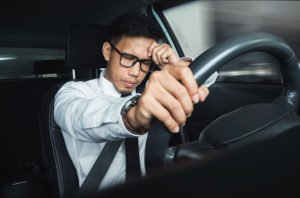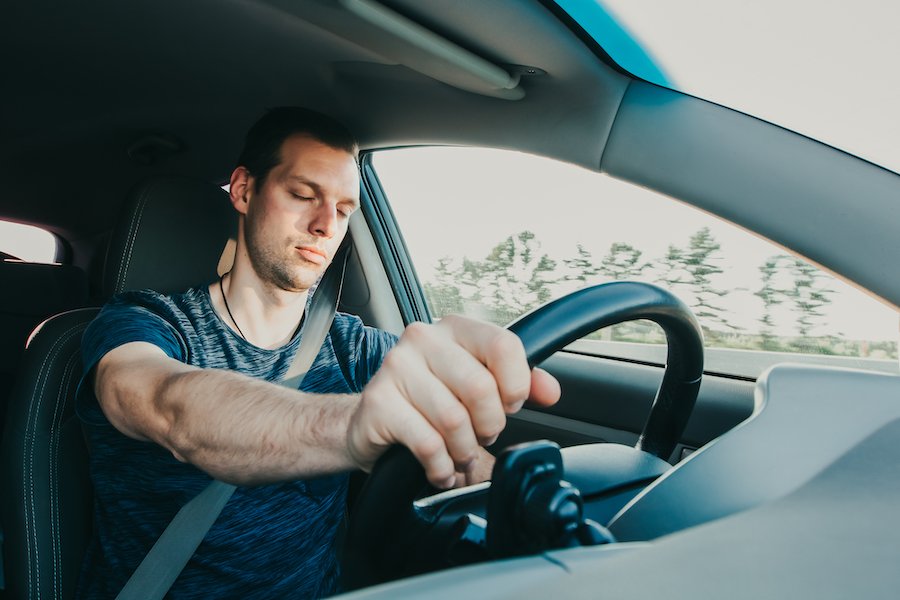
The Ambien defense is a legal defense to charges of driving under the influence of drugs (DUID). The defense is largely based on the fact that some prescription drugs and sleeping medications (such as Ambien) can put you in a trance similar to sleepwalking. When this happens and you are driving, it is often referred to as “sleep-driving.”
While the defense has the potential to work under the right set of facts, it has weaknesses because most people on these medications are warned of their side effects, including the possibility of sleep-driving. The warning works to convert a seemingly unconscious act into a voluntary one.
Note that most jurisdictions have DUID laws in addition to laws on DUI/DWI. DUID laws say that you commit a crime if you operate a vehicle while under the influence of drugs.
A violation of these rules is typically charged as a misdemeanor (as opposed to a felony). A first-time offense is normally punishable by up to six months in county jail and fines in excess of $1,000.
What is the Ambien defense?
The defense says that you are not guilty of DUID because you were unknowingly driving a car since a prescription or sleep medicine caused you to sleep drive. “Sleep drive” means that:
- you took a drug that put you in a sleepwalking type of state, and
- it caused you to get behind the wheel while sleeping.
Some of these “sedative-hypnotic” sleeping medicines are:
- Ambien (the generic form is called Zolpidem),
- Lunesta,
- Rozerem,
- Butisol sodium,
- Carbrital, and
- Prosom.
The “under the influence of Ambien” defense is very much like the legal defense of unconsciousness, which is a complete defense to criminal charges. This is true, though, unless you voluntarily induced your unconsciousness.
In most cases, this criminal defense is limited in operation. This is because people on these drugs are usually warned of:
- their side effects, and
- that the drugs can cause sleep driving.
The warning is essentially the same thing as a voluntary intoxication scenario – and voluntary intoxication (as opposed to involuntary intoxication) is not a defense to any form of DUID or driving under the influence of alcohol charge.
You could try to assert that you were never warned that Ambien, or a similar, drug could cause sleep-driving. The assertion, though, is weakened by the fact that the label on Ambien warns of the dangers of driving on the sleep aid.
It informs you to “Go to bed at least 7 to 8 hours. Do not drive until fully awake.” The label is mandated by the Food and Drug Administration (FDA).
Note that the Ambien defense gained in popularity in 2018 after Roseanne Barr blamed the drug for a racist tweet and her tweeting habits.[i] Kerry Kennedy also helped mainstream the defense in 2014, when she told a New York jury that Ambien overtook her and caused her to crash her car.[ii]
Ambien is made by Sanofi Aventis. Side effects of Ambien include:
- daytime drowsiness,
- dizziness,
- weakness, and
- lightheadedness.
If you are facing a DUI charge or DUID charge, talk with defense attorneys or DUI lawyers to learn if an Ambien defense would help your case.

Sleep-driving is not necessarily an effective defense to DUI charges in California.
What is the law on driving under the influence of drugs?
Most jurisdictions have DUID laws as well as laws on driving under the influence of alcohol.
DUID laws make it a criminal offense to operate a vehicle while under the influence of drugs.
You are considered to be “under the influence” when you can no longer drive like a sober person under similar circumstances due to:
- any drug, or
- any combination of drugs and alcohol.
Note that about 15 states in the U.S. have “per se” drugged driving laws. These laws make it a crime to operate a vehicle with any detectable amount of certain drugs in your system. Some of these states include:
- Illinois,
- Michigan, and
- Utah. [iii]
Violations of a DUID law are typically charged as misdemeanors. The crimes are usually punishable by:
- a jail term of up to six months,
- DUI probation,
- fines over $1,000,
- DUI school, and/or
- a driver’s license suspension.
What is the law in California?
California Vehicle Code 23152f VC is the state statute that makes it a crime to operate a motor vehicle while under the influence of drugs.[iv]
The code section applies to:
- illegal drugs such as cocaine, heroin, and methamphetamine,
- legal drugs, such as marijuana,
- prescription medications (even if they do not make you “high”), and
- over-the-counter medications (including sleeping pills and cold medicines).
As to the Ambien defense, California courts have suggested that sleep-driving is not necessarily an effective defense for fighting DUI of sleeping pill charges.
In the case of People v. Mathson, a California Court of Appeal considered the case of a defendant who was convicted of DUI of sleeping pills after consuming Ambien at home, falling asleep, and then getting into his car and driving recklessly. The defendant claimed that he had been sleep-driving and thus should not be criminally liable.[v]
But the court did not accept his sleep-driving defense. Even though he had never had a sleep-driving episode before, the defendant in Mathson had been taking Ambien for years and had been warned that sleep-driving was a possibility.
This meant that his situation was equivalent to someone who was “voluntarily intoxicated.”[vi]
People v. Mathson suggests you will have a difficult time asserting the Ambien defense in California DUID cases. Your strongest argument will be that you were not aware of the risk of sleep-driving. This is a challenging argument to make because of the FDA warning requirements.
Additional Reading
For more in-depth information, refer to these scholarly articles:
- Slipping through the Cracks: Why Can’t We Stop Drugged Driving – Western New England Law Review.
- Sleep driving: Sleepwalking variant or misuse of z-drugs? – Sleep Medicine Reviews.
- Zolpidem Ingestion, Automatisms, and Sleep Driving: A Clinical and Legal Case Series – Journal of Clinical Sleep Medicine.
- Sleep and Drug-impaired Driving Overlap Syndrome – Parasomnias, An Issue of Sleep Medicine Clinics.
- Driving under the Influence of Prescription Drugs Used Nonmedically: Associations in a Young Adult Sample – Substance Use & Addiction Journal.
Legal References
[i] See, for example, NPR website – “Roseanne Barr Says Ambien Played Role In Racist Tweet That Spiked Her Show’s Reboot.”
[ii] See, for example, ABC news website – “Kerry Kennedy Says Ambien ‘Overtook’ Her, Causing Car Crash.”
[iii] “Drug Per Se Laws: A Review of Their Use in States,” published by the National Highway Traffic Safety Administration.
[iv] California Vehicle Code 23152f VC.
[v] People v. Mathson (2012) 210 Cal.App.4th at 1297.
[vi] See same.

